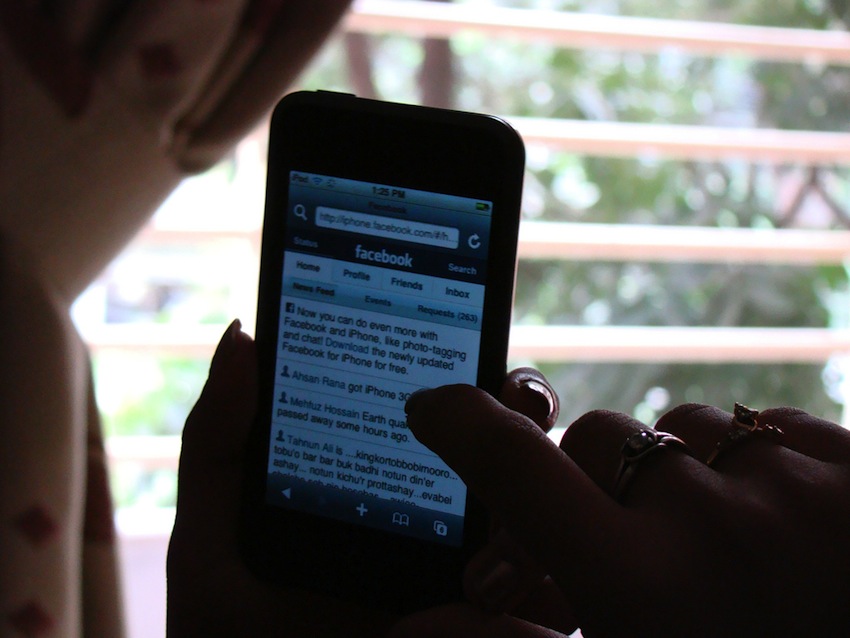A Guy From Kayak.com Wants You To Stop Using Facebook For One Month
Kayak.com CTO Paul English is taking a break from Facebook—arguably one of the biggest vices for eating up personal time, and he’s asking others to join him.
Ironically, English is doing so through Facebook, where he invited people to be part of a month-long “blackout” in October, where he cuts off his use of the site completely:
Signup if you agree to block Facebook for the month of October. Your life will change. Lots of free time to do with whatever you want. Walk? Run? Workout? Meditate? Actually talk to real people, face to face? The choice is yours. Spread the word.
Nearly 1,000 people have been asked to join in, however so far, with just a few weeks left in September, only 78 have agreed to jump on the anti-Facebook bandwagon.
Those on board acknowledge that it will be difficult to take part in the month-long hiatus, and already are talking about hopping back on to Facebook before they even give it up. “No problem! No [Facebook] in October. As soon as November rolls around though … backlog of [Facebook] status updates!,” one person wrote on the invite page.
All of this begs the question: Why even venture into the proverbial Facebook-less unknown, especially when people are bound to return to their old habits?
David Gerzof Richard, social media and marketing professor at Emerson College and founder of the BIGFish marketing agency, says there may not be a point at all, and that going on a month-long break may be more damaging than helpful. “Facebook, really, at its core, is this realized Rolodex of your life. If you needed to find your buddy because you heard news about someone else, you would find [him or her] through Facebook,” he says. “Once you have invested the time and the effort into it, it’s difficult to say ‘I’m going to turn this off.’ It’s become that address book. People live on Facebook, and it’s a good place to stay connected to the world when your world has spread out all over the place.”
Gerzof Richard suggests that people try to scale back their Facebook habits, rather than take a full-on break from the site, because the tool has become such a staple and has drastically changed the way we connect, share, and gather information. “You find out important things because of the social sharing of news.”
Besides, he notes, Facebook is just one of many platforms that can be a “time suck” replacing real life experiences with Internet socialization. And the problem is, Facebook is the “glue” that binds many of those “times sucks,”—or, more appropriately, social media sites—together. “It’s almost like, if you were to look at the different time sucks that are out there, Facebook is just one of them. Everyone has their own poison. Some it’s movies, some it’s TV; everyone has their own way they tune out or tune in. They are methods of entertainment and escapism. Facebook certainly is a great platform for that, but it’s not the only one,” he says. “… There was a point in time that the two major pieces of communication were the television set and then the telephone. That’s how you stayed connected with friends and family. Well, Facebook has replaced that.”
If anything can be learned about what turning away from crucial parts of the Internet can be like, it’s from Paul Miller, who famously logged off the Internet for a year. In that time, at first he felt refreshed, but soon he learned that with everyone relying on social networks, those who opt out can quickly fall “out of sync” with life. “My plan was to leave the Internet and therefore find the ‘real’ Paul and get in touch with the ‘real’ world, but the real Paul and the real world are already inextricably linked to the Internet,” he wrote.
Miller said back in May, in his article titled “I’m still here: back online after a year without the Internet,” after he returned to the grid:
Without the Internet, it’s certainly harder to find people. It’s harder to make a phone call than to send an email. It’s easier to text, or SnapChat, or FaceTime, than drop by someone’s house. Not that these obstacles can’t be overcome. I did overcome them at first, but it didn’t last … So much ink has been spilled deriding the false concept of a “Facebook friend,” but I can tell you that a “Facebook friend” is better than nothing.
Gerzof Richard would tend to agree. While he doesn’t stand against the idea of easing up on Facebook use, he just doesn’t see the point in throwing it away in bulk. “What probably would be a better solution are things like what people are doing with devices. Like when dinnertime for family is just family, shut them down and put them away,” he says. “I would much rather say, instead of having one month without touching Facebook, I much rather say ‘we aren’t going to have Facebook for these hours, every day of the year.’ I think it’s going to be very difficult for people to do it for an entire month.”
In an e-mail, English—who started his Facebook vacation early—wrote that he could try to cut down his use, but he wants to see what will come of a full-blown ban. “Sometimes, I think it is useful to hack a routine by blocking a few things out for a bit, and seeing what evolves.”
If it doesn’t work, he could always turn to cognitive therapy, and shock himself into avoiding the site altogether.



